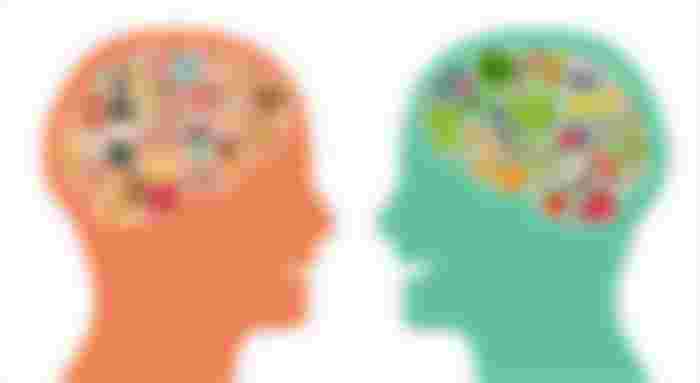If you want to stay mentally sharp and keep yourself focused, then it means eating fresh produce every once in awhile. If you want to be physically fit, then it means eating whole grains, legumes and nuts. And if you want to maintain a positive attitude and have a happy life, then it means eating organic food whenever possible.
The bottom line is, if you want to live a long and happy life, then you need to eat better. This means cutting back on the processed foods you're currently eating and focus on cooking from scratch a lot more.
The next time you go to the supermarket, try to buy only what you'll eat immediately. Don't stockpile anything that's going to go bad before you eat it. You might be surprised at how much more food you can comfortably carry, and how little you'll actually need.
Knowledge is power and by taking the time to learn how to cook from quality ingredients, you'll be giving yourself more advantages in life. When it comes to food, you have to prepare your own. There is nothing better and healthier, then home cooked food. When you cook from scratch you know what you are eating.

Mindful Eating
True mental acuity comes only after the stomach has been filled. The more nourished an organism, the sharper its mind. You've got to eat properly to get the best out of your mental capabilities. Don't drink alcohol before a big test. It'll only make you feel like absolute garbage. Eat a nutritious meal before you study and you'll be much better prepared.
Be sure to eat breakfast. Most of the important decisions you'll make throughout the day can be made after having had some food inside you. Don't neglect lunch and dinner. These are the meals, that contain all the energy your body needs. You'll be able to think better, work better, and study longer if you make time for three balanced meals.
Don't snack on junk food while you study. It won't help your concentration. If you need something to take the taste of the textbooks out of your mouth, drink a cup of strong coffee or tea. It's best not to study stressed. Find a place where you can concentrate undisturbed and let your worries fade away.
Try not to eat too much. Taking in more nutrients, than your body needs will only weigh you down. Make sure you snack on things, that contain a lot of punch for little effort. Don't forget to drink water. A dehydrated mind is a stressed mind. It's important to take a break every so often. Even if you're low on things to do, taking a break will clear your head and make the next thing you do even better.

Balanced Nutrition
Focus and stamina come with good food, but don't forget to fuel them. Eat a breakfast that's rich in simple carbohydrates. This will get your energy levels up for the whole day. For lunch and dinner, have a well-balanced meal, that contains all the necessary nutrients. This will prevent you from feeling hungry in between and give you the energy you need for your mental work.
Snacks should be small and light, such as fruits or nuts. If you're feeling any kind of withdrawal symptoms, just have something sweet. Don't go more than a few hours without water. Drinking a lot prevents headaches and makes you more alert.
Do not eat too much at once. If you do, chances are it will turn to fat and you'll probably end up storing it, which isn't good if you're trying to slim down. Don't skip the sweets. They provide a much-needed boost in energy and keep you from getting tired in the evenings. Know your limits. Don't overdo it or you'll make yourself very sick.
The Science Behind Food And Mood
The nutrients in food affect your body in several different ways. Certain combinations work together to create certain effects on your mood and energy levels. The nutrients, that seem to have the biggest effect on energy levels are:
Phenylalanine
A nutrient found in fruit and vegetable, that is used in the making of the body's natural ‘uppers'. It is thought to increase energy levels, focus and prevent tiredness.
Tryptophan
A type of carbohydrate found in some vegetables and fruit, that has been shown to increase attentiveness and the uptake of information.
Tyrosine
A common amino acid (the building-blocks of protein), that the human brain uses to make important brain chemicals called ‘neurotransmitters'. Deficiencies in this have been linked to a number of mental health problems, including depression and bipolar disorder. Consider whether you might be low on this important nutrient.

The nutrients that have a more minor effect on energy levels include:
Calcium
This essential nutrient is important for the maintenance of healthy teeth and bones, and for the transmission of nerve impulses in the body. Deficiencies in calcium are rare, but can occur if a person does not eat enough dairy foods or if they have certain medical conditions.
Chromium
This element is important in helping to regulate blood sugar levels. Some evidence suggests, that chromium deficiency might lead to a condition known as ‘fasting hypoglycemia', which occurs when there is a drop in blood sugar levels, possibly due to inefficient regulation of insulin levels by the body.
Folic Acid
This B vitamin helps the body make new cells, especially those involved in the brain and nervous system. Deficiencies in folic acid are rare, even during pregnancy, but may occur if a person does not eat enough vegetables and fruits containing this nutrient.
In general, try to aim for a diet that contains a balance of the different macronutrients:
Protein
Protein can be broken down into its individual components and used as an energy source, or it can be stored as body fat. Too much protein, though, can be converted into glucose and used up as energy. Protein can also ‘trickle over' into the brain and have a number of effects, such as increasing alertness and improving concentration.
Carbohydrates
Carbohydrates can be broken down into glucose (a simple ‘fast' fuel) or they can be stored as body fat. They can also affect blood-sugar levels and may have a role to play in mental health issues such as ‘hypoglycemia' and mania. Consuming too much simple carbohydrate can also cause feelings of ‘clinical depression'.
Fat
Fat can be stored as body fat or used as an energy source. It can improve ‘coping' ability and overall mood.
Balanced meals containing a combination of these different nutrients can ensure, that your body is receiving the important fuel it needs to function at its best. It's also important to note, that the nutrients work together. If you're eating a diet, that doesn't supply your body with the nutrients it needs for example, it may not matter how much you eat of any one particular nutrient as your body won't be able to properly utilize the food you do eat.
In addition, some foods contain more, than one type of nutrient and certain food groups contain certain nutrients in greater amounts, than others. For example, green leafy vegetables are a good source of Vitamin K which is important for blood clotting, they are also a good source of folate which can prevent certain types of birth defects in pregnant women and they are a good source of magnesium, which is important for heart health and for regulating the amount of calcium in the body.
It's also a good idea to get a variety of different foods from these different food groups as this can help to ensure your body is getting all the nutrients it needs. Protein-rich foods such as meat, fish, eggs and diary products are all good sources of certain nutrients and it's important to include these in your diet as part of a balanced diet, but these foods don't provide your body with many of the other vital nutrients that it requires. For example, eggs are a good source of protein, but they only contain around half a day's worth of vitamin D. Nearly all of which needs to be supplemented.
Other important nutrients include:
Vitamin B 12: found in animal products such as liver, eggs and meat.
Vitamin D: found in few foods such as fortified milk and eggs.
Vitamin E: found in vegetable oils such as sunflower and corn, nuts and seeds. Also present in small amounts in eggs and meat.
Vitamin K: found in green leafy vegetables, but few other foods supply it.
Folate: found in many foods such as green leafy vegetables, eggs, beans, lentils and nuts.
It's important to note, that while it may seem like a good idea to cut back on certain foods in order to save money, if you're not eating a balanced diet this may end up costing you in the long run. A good diet can be viewed as insurance against potential future issues arising with your body. By having a well-rounded diet, you'll save money in the long run as you won't have to spend money on unnecessary treatment and medication.





Here, in our household, we make sure to eat veggies a lot. If there's a special occasion and the menu is more on meat, the next day, we make sure to have veggies for the entire day. Veggies that are fresh from our garden and neighbor's as they also share some to us.
We rarely eat processed foods because my sister wants everything healthy for her kids. However, we sometimes don't eat breakfast and eat brunch instead. There are times we only eat twice a day.